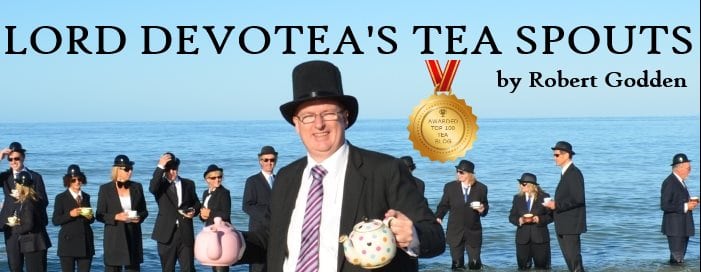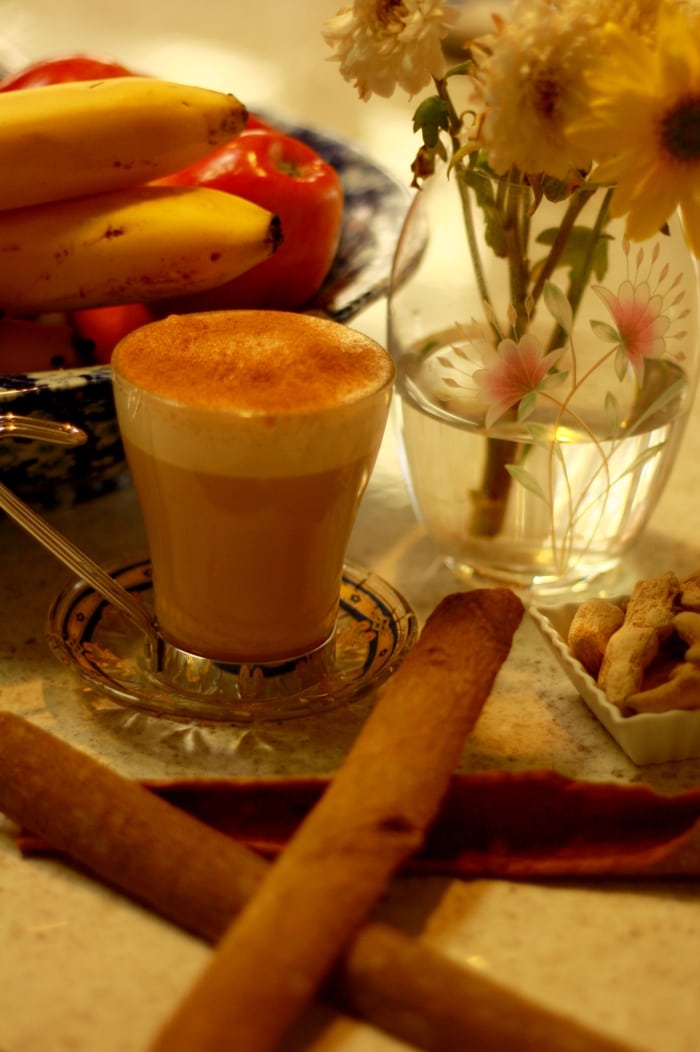If you loved the movie Inception, then you’ll love the fact that I am going to go on a rant about a guy who went on a rant about an article. In it, he bought his own arrogance and prejudice to the fore, and hey, I’m comfortable with doing the same. In fact, I rarely do otherwise.
So, in a colossal rant on Al Jazeera, Hamid Dabashi took exception to an article on the BBC, which is here.
It turns out that Hamid Dabashi is the Hagop Kevorkian Professor of Iranian Studies and Comparative Literature at Columbia University. This makes him and I approximately as tea-scholarly as each other, as he may have a professorship and teach at a prestigious college whereas I may have failed High School, but he teaches Iranian Studies and Comparative Literature, which is not tea, and I teach a four-hour course at a community college that IS on tea, so let’s call it a draw.
Incidentally, I refute any suggestion that the convoluted sentence above is calculated to irk a professor of Comparative Literature.
So, let’s dissect the issues I have a problem with.
Let’s start with the initial contention of Prof. Dabashi’s article:
“First of all, let’s talk tea. The British do not know how to make tea. What they call “tea” is a travesty. There is no polite way of putting it. They just suck at making tea. Yes, they have built a splendid ceremony around what they call “the afternoon tea” but at the centre of the ritual is a nonsensical disaster they make with a beautiful and miraculous herb about which they do not understand the most basic facts. “
It’s hard to know where to start with this racist stereotyping. Ironically, he launches into it after chiding the BBC article for the clumsy way it has alluded to stereotyping.
Based on annual teab*g sales in Britain of £480,000,000 and the fact that £2.29 gets you the most popular teab*g there, the 80-pack of the execrable PG Tips, there’s clearly no doubt whatsoever that an awful lot of really bad tea is consumed in the UK. And in my travels and conversation with those who imbibe that particularly foul brew, there seems to be a mixture of ignorance (“this is as good as it gets”), laziness (“using a teapot is really hard, like splitting the atom”) and pride (“PG Tips teab*gs were good enough for your father, young Tom, and his father, and his father, and his father afore him, so we’ll hear no more nonsense about fancy Darjeelings or some high falutin’ Iron Goddess” *)
However, those same figures indicate only just over three boxes per person are sold in the UK annually. The differential between tea imports into the UK and teabag sales implies that loose leaf tea accounts for about 3% of sales. Having safely established that at least 97% of the tea consumed there IS appalling, you have to look at those brave souls who occupy the 3%, and either buy tea from speciality shops and brew it themselves or who bravely brew good tea for others as a job.
There’s no doubt that some “Afternoon Teas” revolve around a glass of champagne and dainty foods, and you may even find something as low-rent as a Twinings teab*g at some of them, but there is also no doubt that you find some really great tea, I remember a Puttabong at the Dorchester and a Tregothnan UK grown tea at Brown’s Hotel with particular fondness. Some of these hotels have FIVE sittings a day, so that’s an awful lot of good tea being dispensed.
I’ve discovered great little loose tea places in out-of-the-way villages. I recall Lady Devotea and I popped in to look at a church and walking trail in Thaxted, Essex and found a specialist Ceylon tea shop. And of course, London has so many good little loose leaf tea places that people have been writing books listing them for hundreds of years.
So, I think Professor Dabashi’s contention falls away, or cadit quaestio if you want to be comparatively literate.
The next part of his piece seems to contrast putting milk in tea, which be seems to beleive is akin to the arbitrary executions of the Soviet Great Purge of 1936-1938 and putting sugar in tea, which he regards as perfectly normal.
I think I’ve made it clear what I think of anyone telling anyone else what they should, or shouldn’t put in their tea, and/or judging them for it. Many times, such as here. Again, it’s a superiority complex, it’s stereotyping, it’s a nonsensical division used to indicate a baseless but incredibly smug superiority. It’s human behaviour at its worst, and Peter Gabriel puts it best “There’s safety in numbers, when you learn to divide, How can we be in if there is no outside?…You may look like we do, talk like we do but you know how it is, you’re not one of us”.
Even George Orwell was not immune to this: he was OK with milk, provided it was in Indian tea, but virulently anti-sugar – on taste grounds. And it was just as wrong when Orwell said it, albeit from an opposing camp to our protagonist here.
Prof. Dabashi then launches into full anti-Brit sentiment, conflating the slave trade, sugar and tea, which is a fair criticism but not accurate in its absolutism. Here’s a few points clearly overlooked.
- Not all Brits were for the slave trade and sugar, there are extant adverts from grocers of the period , for example, explaining why they will not sell sugar, and a serious political movement.
- Sugar had and has many uses, tea was an important contributor but not the be-all and end-all.
- There were multiple nationalities involved in the slave trade at the time and throughout history. Sure, Prof. Dabashi’s own Iranian forebears got into the abolitionist cause early (539BC thanks to Cyrus The Great) but American and other European powers were hardly blameless. Britain abolished slavery for most 30 years before the USA and for all twenty years before the USA. Look at where Kenya, the country that grows a hug proportion of the tea used in bags sits on this modern map of slavery and wonder why they didn’t get a mention.
- He talks about the Opium Wars, and yes they were a blight on the UK and yes, the East India Company was pretty well responsible. A useful example of British colonialism and using the state to enforce commercial bastardry, however only marginally related to tea.
- He talks about American revolutionaries “calling their initial uprising ‘Tea Party'” as an illustration of objection to the British tea trade, when that term appears to only be in usage from 1834, more that fifty years later. And the “Tea Party” today is a very different beast.
- He fails to upbraid Tibetans for putting salted butter in their tea, Indians for milk and sugar, Uzbeki’s for adding milk to green tea. It’s like suggesting the inferiority of Costa Ricans on the basis they wear pants.
- He bizarrely has two cracks at Zionists, with very sketchy linkage.
Overall, I found it overblown, overstated and partisan. Almost vicious. Quite frankly, all of the things my writings are. But – and this is the big ‘but’ – I think we can leave the racism** and cultural superiority complexes out of it.
These things are far more offensive than a squirt of milk in one’s tea.
*Unless they habitually fathered children in their mid teens, this is unlikely, with teab*gs not being introduced in the UK until 1953
** Making gentle fun of French people is acceptable if you do it ironically and/or for satirical purposes.


Hey Robert,
Just read the article about “Making an Inception” interesting post and funny enough I enjoyed Prof. Dabashi’s take on British and the Tea.
My name is Charles and I work as Digital Strategist for .
is a Family owned Tea store where you can find some of the world’s BEST LOOSE LEAF TEA and Organic Herbal Tea blends.
We’ve a personal love for and belief in the warmth and health enriching powers of a good cup of tea. we invite you to ‘sip into something comfortable’, complete that perfect day and enrich both body and soul as we become your neighbourhood tea house.
I couldn’t find the registration link, I guess it’s close for now. I’d like to contribute few interesting and unique topics on Tea and it’s benefits plus couple of other in-depth article and share our knowledge with the readers.
Thanks,
Charles
I recommend you choose between commentary and spam, I’m confused by your combination of the two. I note that you’ve been emailing other tea bloggers I know asking for permission to get your material onto their blogs, obviously I wasn’t worthy of being asked first.
So someone that is a little bit like you but all wrong and too offensive?
Perhaps we should just offer him a cup of tea.